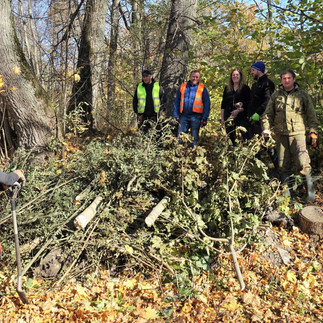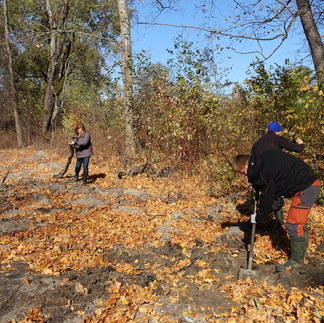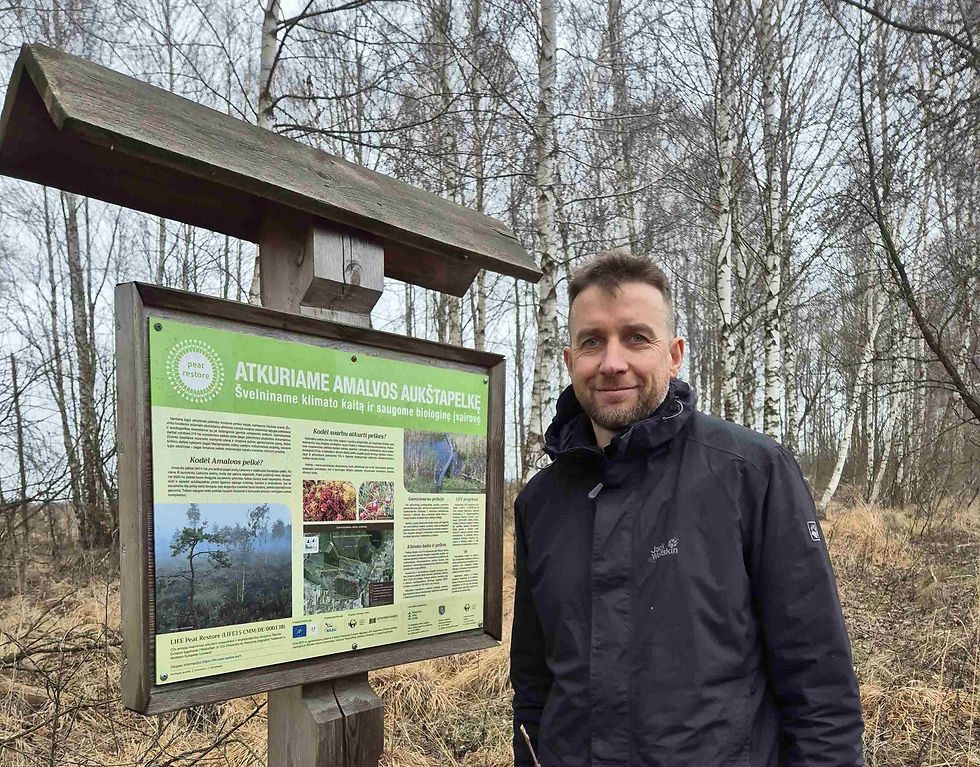As the amphibians of the Preili manor park became rich in new wintering grounds
- Jan 24, 2022
- 3 min read

The landscape park (41 ha) of the romantic Preili manor is decorated with a complex system of canals and ponds with islands, which cover more than a third of the total area of the park - about 13 ha. However, water bodies are not only a place of attraction for us - park visitors, it is a real home for aquatic plants and animals and a refuge for the living part of nature that can choose where to spend their days - on water or on land. The waters of the park attract insects, birds, mammals, and, of course, amphibians ... However, man-made creations require care, otherwise they disappear and improve their beauty and essence. In the last century, not all water bodies in the Preili Manor Park managed to survive as far back as the 19th century. the traits given to them in the middle. The changing lives of people and their habits have also changed the face of the park. XX a. the other half “gave” incredible nutrient pollution to all water bodies. Preili Park did not escape such pollution caused by human activities: the increased amounts of nutrients (mostly nitrogen and phosphorus) contributed to the eutrophication of the waters, and at the same time to the loss of biodiversity and open coastlines in the park. If left to the will of fate, both the ecological and the aesthetic and cultural values of the park's waters will continue to disappear. Žydrūnas Sinkevičius, a nature conservation expert at the Wetlands Restoration and Protection Fund, says that “... the water bodies of the parks are extremely important for the survival of biodiversity also because they are the habitats of rare amphibians where they settle, feed and breed. In April-October 2021, 5 species of amphibians were observed in the park and ponds of Preili manor: meadow frog (Rana temporaria), large and small pond frogs (Pelophylax kl. Esculentus, P. lessonae), gray toad (Bufo bufo) and common tern (Triturus). vulgaris) ". 2021-ųjų vasaros pabaiga ir ruduo – sujudimas parko vandenų gyvenime. Projekto LLI-476 Save Past for the Future “Vandens telkinių Latvijoje ir Lietuvoje ekologinių sąlygų pagerinimas” iniciatyva pradėti valyti senieji Preilių dvaro parko kanalai: gilinamas jų dugnas, šalinamas susikaupęs dumblas bei surenkamos vagoje bei pakrantėse susikaupusios šiukšlės. Išvalius kanalus ne tik pagerės vandens kokybė, vandens telkiniai ir jų pakrantės taps patrauklesni parko lankytojams, bet ir susidarys palankesnės sąlygos parke gyvenantiems varliagyviams gyventi ir veistis. At the beginning of October, while the excavators cleaning the canals were still roaring in the autumn park, the project partners - specialists of the Wetlands Restoration and Protection Fund - came to Preili to help install new wintering grounds for amphibians. After all, it is time for them to find places where they can safely spend the coming winter, and in the spring, without fear of predators lurking in them, to reach the waters where a new generation of amphibians will be born. However ... the environment of the manor canals that are still being managed does not look very hospitable.
Nature conservationist Ž. Sinkevičius explained to the representatives of Preili municipalities how wintering places for amphibians are being set up: "At a selected location, 0.5 m deep beds are dug and stumps, branches, stones and 30 cm of soil are laid in it, then the stumps are loaded again and another layer of soil is filled in. m high cone, which do not surprise - will gradually inevitably collapse. Well, now let's all get to work so that the amphibians of Preili Park can settle in three new "winter palaces" for at least a few winters. We hope that these new wintering places will improve the wintering conditions for amphibians, so frogs will delight the visitors of the romantic park in the spring with a romantically melodic roar. ”
Project "LLI-476 Save the Past for the Future"
2014-2020 Interreg V-A Latvian-Lithuanian cross-border co-operation program
The total value of the project is EUR 1,030,848.12,
of which - co-financing of the European Regional Development Fund - EUR 876,220.89.
The aim of the project is to increase the capacity of organizations involved in the restoration and maintenance of historic parks in the regions of North-Eastern Lithuania and Latgale through modern and comprehensive land management provisions combining historical, natural and biodiversity values and aspects of the rural landscape.
This article has been produced with the financial assistance of the European Union.
The State Agency for the Restoration and Protection of Wetlands is responsible for the content.
The contents of this article do not necessarily reflect the official position of the European Union.
Program website www.latlit.eu.
EU website www.europa.eu.
📷 Photos by Jūratė Sendžikaitė and Žydrūnas Sinkevičius






























Comments